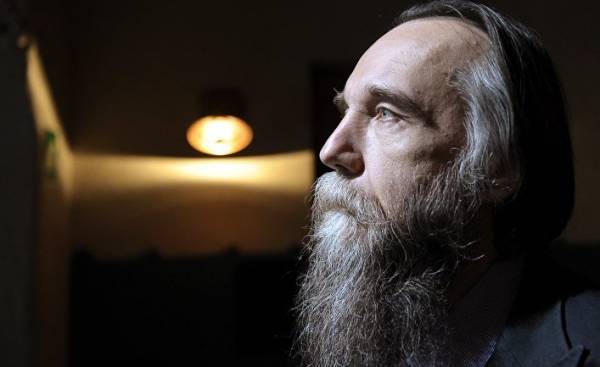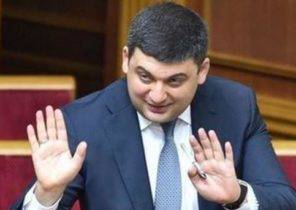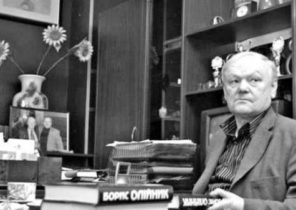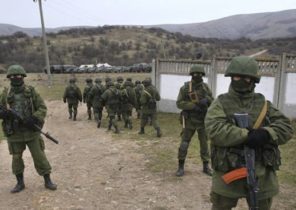
Maybe it’s time for us to begin serious discussion on the issue of national identity.
It is difficult to give a clear definition of national identity. Within the academic community there is no agreement on exactly what the category in question — a scientific, or political. For some, national identity is an essential characteristic of any entity based on irrational feelings. Others speak of it as a social construct. Third put on the forefront of a certain instrumental function of national identity. In addition to these theories, there are many others that deal with the meaning and content of national identity, But yet no one theory has failed to give a full interpretation. The same difficulties as in the scientific quest for the definition of national identity, appear when we move into the sphere of politics.
What is the national identity of the state, society or ethnic group? Who and how forms of national identity? Be it people, or her pose for people of the elite? Is there a need for a strong national identity for the stability of the state, and what are its differences from the multinational and multi-confessional unions? In the modern Russian Federation all of these issues are in public discourse. Suffice it to say that after the collapse of the Soviet Union to the Russian political, religious and scientific elites, national identity, Russia has become one of the main objects of interest.
Regardless of what period there is a speech: about the Kyiv Rus, the Russian Empire, the USSR or the Russian Federation — one fact plays a fundamental role in understanding what the Russian state. What is meant by the Russian government (for many in the West and the USSR were Russian or “Communist”), never in the history was not a state exclusively Russian or East Slavic peoples origin. According to Russian President Vladimir Putin, Russia has never been a nation state or a “vessel for melting” like America. Russia has formed and developed over the centuries as a multinational state, ethnic Russians and hundreds of other ethnic groups.
No intolerance was not
Thus, assertions about Russia as a “pure” Slavic state, which we have heard very often, only reflect the romanticized view, and sometimes a complete ignorance of the facts. Russian identity is much harder to understand, and its most striking elements is a Russian ethnicity, Russian language, Orthodoxy and what is called the Russian culture. However, besides these aspects, the identity and the spirit of the Russian people influenced other Nations with their different genes and traditions. The peoples of Turkic, Finno-Ugric, Caucasian, Iranian origin, like many other “alien” peoples in the service of the Russian state have left an indelible mark in the Russian identity.
Unlike some societies who consider themselves the most advanced and free, but in the past repeatedly demonstrated intolerance towards citizens of different ethnic origin, religion or skin colour — in the Russian state (regardless of what the period in question) such an idea never found significant support.
It someone may object, arguing pogroms and Stalin’s deportations, but, in spite of their tragic consequences, they can’t compare to the Cromwell conquest of Ireland, the Huguenot wars or the conquest of the conquistadors in Central and South America. Events in the Belgian Congo, the fate of the indigenous people of Australia and North America, and the slavery of blacks — examples that continue this series. Crimes caused by intolerance to ethnic and religious differences and committed during the Second world war, the countries of the axis and their allies, by their scale and nature surpass all the previous.
Russian development of Siberia, the indigenous inhabitants of those territories, of course, was not met with enthusiasm, but they don’t have to worry, and that passed through the natives of the New world, faced with European colonizers. According to many authors, in Russian state policy did not exist developed ideas of racial superiority, which in practice would lead to attempts to destroy or complete the destruction of the “less useful” people. Some cite a lack of ideology based on racial superiority as one tagcause the Russian colonization of the Caucasus and Central Asia of factors.
The role of memories of the Second world
Today in the Russian Federation inhabited by about 200 ethnic groups, which, besides common features, there are many differences. Due to internal and mostly external factors, these differences may adversely affect the stability of the country. The political leadership of the Russian Federation considers that the answer to this challenge should be the strengthening of a common national identity, which the Russian Federation is often called the Russian.
Russian identity, in contrast to the Russian, comprehensive. It is based on Russian language and culture, rather than Russian ethnic origin. By its nature it involves other ethnic groups and encourages them to commitment to the state in which they live, its history, characters and, importantly, power. Tatar, Ossetian, Chuvash, Yakut or Nanay should not abdicate from its primary identity, to take Russian. On the contrary, they complement each other.
The victory of the red army over Nazi Germany is perceived by the Russian public as a common victory of all Soviet citizens, as an event not to be forgotten, and which must be treated with reverence. Due to this crucial contribution of the Soviet soldier and the man in the defeat of Hitler’s military machine by the wayside depart Stalin’s purges, deportations and camps. Memories of world war II in the Russian Federation and unite, not exacerbate old wounds and disagreements.
And yet the Russian identity is a concept that is not fully developed and generally accepted. Besides him, there are other ideas about what should be the national identity of post-Soviet Russia. The main problem of the Russian concept associated with difficulties in the exact definition of what is Russian culture, to surpass the cultural boundaries of the modern state, and that all who speak in Russian, especially non-native speakers can “truly” make the Russian identity.
The situation becomes more complicated if we consider the numerous Russian-speaking population of the former Soviet republics and their relation to the question of identity. Many representatives of the Russian community warned that Russian identity is threatened Russian identity, and moderate criticism “rosista” claim that ethnic Russians always played the role of “older brothers”, and now don’t have to give her up. The extreme right in fact reject the concept, believing that the state and its identity can only be “pure” Russian. In recent years, due to government action and internecine conflicts, right-wing groups have lost power, and their dreams of a “Russian” Russia does not get a special response from the public.
Eurasianism, known primarily thanks to the Russian philosopher Alexander Dugin, by contrast, is booming. According to Dugin and his followers, Russia is neither European, nor to Asian civilizations, and is a special and unique civilization. The mission of Russia as the most powerful continental powers to resist the Maritime powers, represent primarily the US, which wants to take full control of Eurasian space (Mackinder — Heartland), and thus the whole world.
The formation of the concept of Eurasianism Dugin was influenced by the works of Mackinder, Russell, Haushofer and thinkers of the interwar period from the midst of white emigration. Dugin advocates the creation of a Eurasian Empire, which was Russia. In Germany, he sees a partner in the fight against the “sea powers” and not the enemy of Russia, strongly rejects the liberal values that impose “sea power,” primarily the United States, and calls for the preservation of traditions.
In the West, Dugin is considered the main ideologist of the Kremlin, the father of a new Russian national politics and a close friend of Vladimir Putin. Often the Western media called Dugin obscure, marginal and dangerous philosopher. However, the influence of Dugin in the Russian policy and Vladimir Putin overestimated and exaggerated by the media. Dugin himself publicly expressed sharp criticism of the Kremlin’s policy in the Ukrainian crisis, and in 2014, Dugin left the professorship at MSU.
The post-Soviet era: a conflict of concepts
The collapse of the Soviet Union meant also the collapse of the system of values which the Communist party has built more than seventy years. The Soviet identity of the citizen of the Russian Federation did not disappear in an instant, but weak, and, more importantly, its content was vague. Its foundations were destroyed or has largely lost its meaning. State, army, education system and health care experienced in the 90s is a difficult period. State ideology, which existed for decades and based on Marxism-Leninism, became an undesirable and often condemned in public discourse. It was during this period in the Russian political arena, the ball is ruled by the liberals and reformers, the purpose of which was to form Russia on the Western model.
In other words, in their opinion, the Russian Federation can be stable only when one becomes a liberal democracy with civil society, market economy and freed from the burden of Communist and Imperial past. Outstanding representatives of this approach were some high-ranking members of the Yeltsin administration, in particular, Anatoly Chubais, Yegor Gaidar and Andrey Kozyrev.
The project “modernisation” of the Russian state instead of enhance the quality of life of citizens, brought the country to a complete political and economic collapse, and a comprehensive privatization (“shock therapy”) public property left millions of people without work. Citizens of the Russian Federation was faced not only with material difficulties — many of them have experienced a serious identity crisis. Moscow has lost international prestige. Chechnya, in fact, from 1991 to 1999, was an independent state. The combat capability of the Russian army was dangerously low. According to the opinion polls, the majority of respondents have a negative attitude to such concepts as national pride, trust in state institutions and the army.
With the arrival of Vladimir Putin to power and in connection with the traumatic experience of the 90s, the idea of nation-building and identity on the Western model was relegated to the background. Building a new national identity, adapted to the XXI century, has become one of the most important tasks in the work of Putin and his administration. As he himself once said, the Russian government supported the formation of a common identity based on cultural affinity, shared history and respect of common victories and heroes. Because this process of formation is ongoing and its final results are unpredictable, the Russian public does not stop the discussion of this issue. An interesting contribution to the debate on Russian national identity has made the report of the panel discussion of the Valdai club in 2014.
Is it possible to apply the model of the Russian Federation
In the report titled National identity and the Future of Russia, among other things, States that the Russian identity is characterized by a love of liberty, willingness to sacrifice, openness, tolerance and sense of justice. Among the negative traits is inconsistency, impulsiveness, lack of personal initiative. According to the authors of this report, the government should steer the development of human capital, and to the citizens of the country should not be treated just as subjects of power. The development of human capital involves three key aspects: education (for better future), a sense of “owning” their own country (for the present) and genuine acceptance of the country’s history (for the past).
As in the case of the Russian Federation, most countries of the Western Balkans, in fact, there is no articulated national identity, and many activists of the liberal persuasion in our area think national identity is something unnecessary and outdated. However, they do not pay enough attention to her features and lose sight of the fact that they are so close to the West cosmopolitanism or globalism are unable to completely displace national identity. National identity has three main functions: firstly, the political, which implies the strengthening of common interests, and the leveling of differences within a society, secondly, the strengthening of personal confidence, and thirdly, the satisfaction of innate human needs to be part of the group.
Maybe it’s time for us to begin serious discussion on the issue of national identity based on respect for different opinions. Of course, by itself, identity does not guarantee financial stability and prosperity, but it is clear formulated and adopted by the greater part of the society’s identity can be a good incentive to achieve a state of prosperity.







